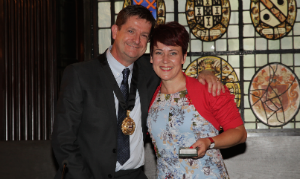
The Law Society is the professional body of all solicitors subject to English/Welsh jurisdiction and has 166,000 members. As its President Andrew intends to begin and lead a debate on the issue of access to justice.
In an interview with
The Times, Andrew said the social justice thread which ran through his Methodist parents' lives had been a major influence on him
.
‘Most of us came into the law because we wanted to make a difference in society; we had ideals that we wanted to represent the poor and underprivileged, and believe in justice.’
But freezes and then cuts by successive governments have made it increasingly difficult for people to obtain housing, immigration, welfare benefits, family and matrimonial advice via the Legal Aid system.
The rule of law, dating from the signing of the
Magna Carta almost 800 years ago, cannot exist unless citizens have access to justice, Andrew explained.
‘There can be no access to justice when citizens, especially those who are vulnerable or marginalised, do not understand their rights or are financially unable to obtain redress,’ he said. Andrew (pictured with Lindsay) has also a written an essay for the
Theos thinktank on this issue, set to be published later this year.
His presidential year will also have a major focus on gender based violence (GBV), which in part has been inspired by
BMS World Mission where Lindsay is a trustee. In the autumn BMS launches a major initiative called Dignity which focuses on GBV.
'There have been a number of conversations between us over the last 18 months regarding this subject,' Andrew revealed. 'It would probably be accurate to say that the original seed was planted following conversations between Lindsay and me, and Steve Sanderson and Mark Craig from BMS.
'The area of GBV includes domestic violence issues, sex-trafficking and female genital mutilation, and all are issues of concern within the UK.
'As Law Society President, my intention is to highlight these issues, explain the positive role that lawyers play in advising and representing the many victims, pressure the government to make funding easier (particularly in respect of domestic violence) and suggest appropriate changes in legislation to make.'